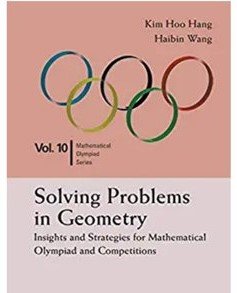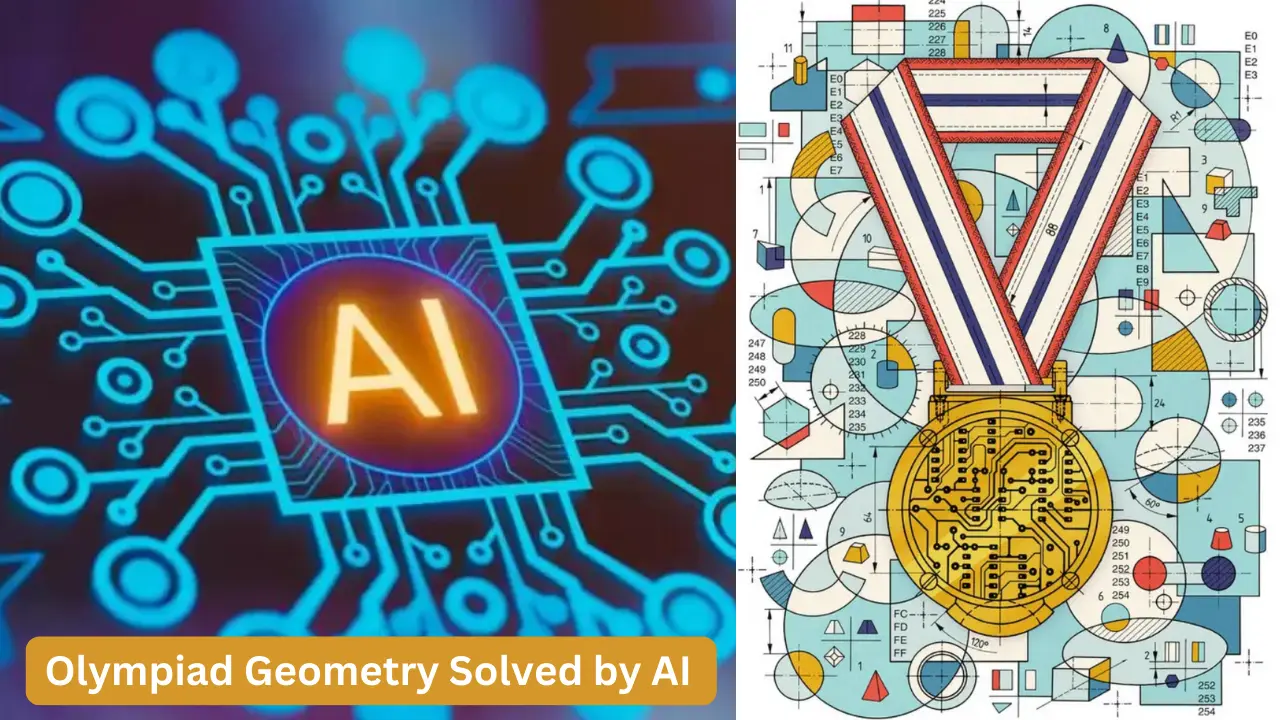Olympiad Geometry Solved by AI 2024: Google’s DeepMind created AlphaGeometry, an AI system that’s like a math whiz. It aced 25 out of 30 tough geometry problems from the International Mathematical Olympiad (IMO), putting it on par with top human competitors. Typically, humans in the competition solve about five to six problems over two days.

Dr. Sébastien Bubeck from DeepMind is thrilled, saying AlphaGeometry’s success means it learned core geometric reasoning better than we thought possible. This is a big step forward for AI in tackling complex problem-solving tasks.
Olympiad Geometry Solved by AI
AlphaGeometry, a super-smart AI, recently aced 25 out of 30 tricky geometry problems from the International Mathematical Olympiad (IMO). That’s almost as good as a human gold medalist at the IMO.
This achievement is not just about numbers. It shows how AI, like AlphaGeometry, can be super useful in advanced math. Imagine using it for research or teaching.
AlphaGeometry’s success highlights how AI and machine learning are getting better and better. It’s like AI is becoming a cool math buddy, keeping up with humans in solving tough problems. This is a big step in teaming up humans and AI for even more exciting math adventures.
Teaching AI To Reason About Shapes
The remarkable progress achieved by AlphaGeometry lies in its capability to systematically navigate through complex multi-step geometry puzzles, involving intricate aspects such as angles, distances, areas, and other spatial relationships.
This demands a profound understanding of the nuanced rules and principles governing geometry at an exceptionally high level.
Dr. Bubeck elaborated on this, stating, “We are essentially teaching the AI system to ‘see’ shapes in its mind’s eye and work out all the resulting implications. It learns over time how to chain together very long sequences of inferences to arrive at solutions.”
The challenges presented to AlphaGeometry necessitate a series of creative logical steps and geometric insights, mirroring the complexity involved in proving mathematical theorems. Out of the 25 problems successfully tackled.
10 were resolved using inventive combinations of mathematical techniques that had not been previously published by human mathematicians.
This showcases the AI’s ability to not just replicate known solutions but to generate novel approaches, hinting at its potential to contribute to advancements in mathematical problem-solving methodologies.
Pushing The Boundaries of AI
The success of AlphaGeometry in solving Olympiad problems is seen by its creators as a testament to the ability of cutting-edge AI systems to engage in high-level abstract thinking, effectively narrowing the gap with human strategic thinking, particularly in mathematically creative domains.
Dr. Dennis Lee, co-lead author of the paper, highlighted the significance, stating, “The fact that AlphaGeometry can crack these puzzles shows that AI algorithms are becoming extremely adept at disentangling and relaxing combinatorially complex problems.
This could someday enable autonomous systems to assist humans in many intellectually demanding tasks.”
It’s worth noting that achieving this level of proficiency with AI was initially anticipated to be 5–10 years away, making AlphaGeometry’s advancement notably faster than expected.
This underscores the accelerating capabilities of artificial intelligence and highlights how advanced algorithms are rapidly approaching, and in some cases surpassing, human-level performance in challenging intellectual domains.
The implications of such progress hint at the potential for AI to play a significant role in assisting humans with complex problem-solving tasks in the near future.
Wider Applications
AlphaGeometry’s success in mastering high-level geometric reasoning has broader applications beyond math puzzles, according to researchers. This skill could be used to automate mentally demanding tasks in areas like software verification, network analysis, and risk assessment.
Dr. Bubeck explained, “Teaching an artificial agent to reason about abstract concepts like geometric relations could transfer to tasks like writing proofs or optimizing complex systems.” Beyond geometry problems, AlphaGeometry is seen as a building block for more applications of human-like logical reasoning in AI.
The goal is for similar systems to eventually collaborate with human experts, boosting overall performance. Dr. Bubeck emphasized, “By improving systems like AlphaGeometry.
We hope AI and humans can tackle even more creative tasks together in various fields.” The vision is to have AI as a valuable partner, assisting humans in solving complex challenges across different domains.
